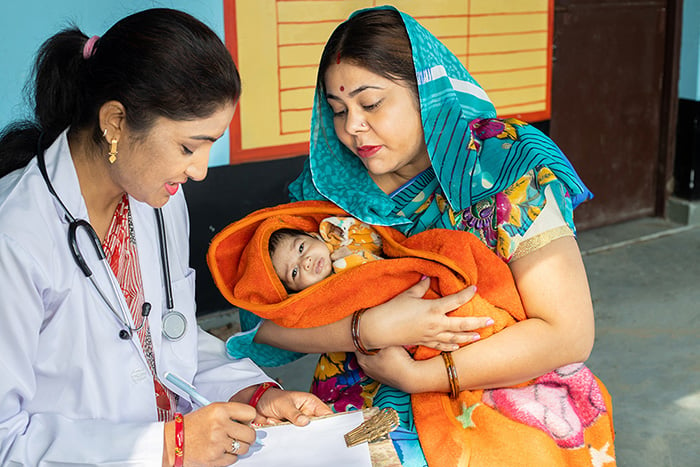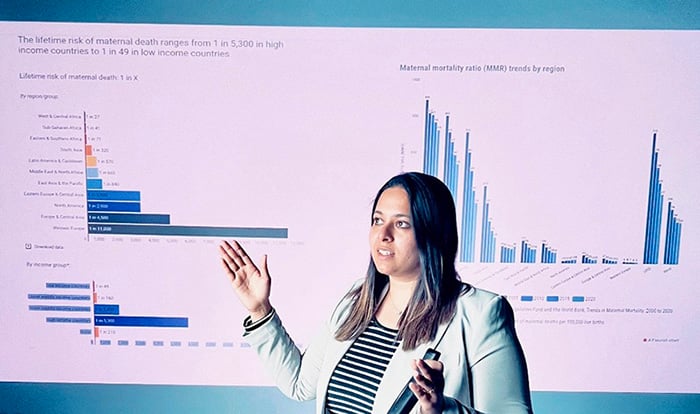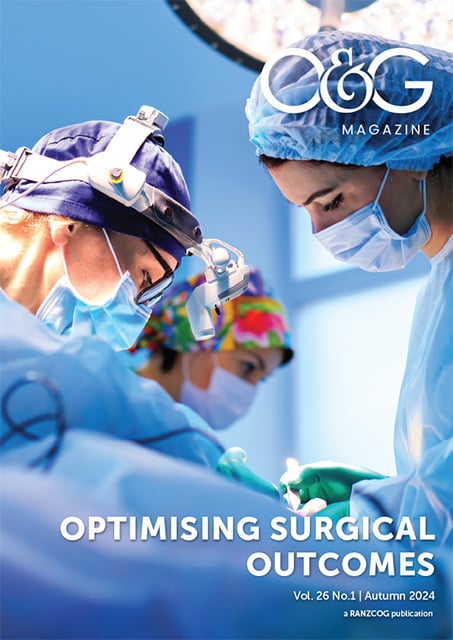Healthcare education is in a constant and dynamic state of evolution, and the significant progress in this area in the last two decades is secondary to the integration of virtual technology. COVID-19 reinforced the need for, and furthered, the boons of virtual technology. However, way before the pandemic, virtual health education was developing as a ground-breaking tool, revolutionising the training of healthcare professionals and arming patients with health-related information. This innovative approach combines technological advancements with modern educational methodologies enhancing learning experiences and bolstering the ultimate goal of improving healthcare outcomes.
My initial experience with virtual health education
My first exposure to virtual health education was through my experience supporting a pregnancy and parenting app in 2018 as a junior doctor. The app focused on assisting and educating pregnant women and new mothers, as well as providing interactions with doctors who would give advice and recommendations. Progressing swiftly through the ranks to lead doctor, I would oversee the medical content creation process and organise live video sessions with approximately 4,000 women every hour. Participants could interact directly with our team of medical professionals. Significantly, understanding the cultural and language barriers in India, the information was delivered in nine vernacular languages of India.
The support for mothers and pregnant women included collaborations between obstetricians, paediatricians and allied health professionals. As a developing country, India is not short of myths, which we strived to debunk by offering evidence-based guidance to support women in making informed decisions about their health. The platform’s rapid growth to over 15 million users across the country highlighted the potential, and demand for, reliable virtual health resources, especially in the subcontinents and similar regions, where access to quality healthcare is limited. Being an early provider of this service, not only allowed me to contribute to improving women’s lives, but also emphasised the potential of virtual health platforms in positively impacting a large audience, where the possibilities felt endless. We had our share of challenges, but overall, my experience was rewarding, empowering, and enlightening.

A Paediatrician examines a newborn baby cradled by their mother in a rural village in India. Photo: Gajendra
How am I managing health education to a Hindi-speaking population from Australia?
Upon relocating to Australia, I had to reduce my hours supporting the app’s medical team. However, I continued to volunteer for live women health topic sessions as and when possible. My zest for women’s education made me seek further opportunities, including holding virtual sessions with women of different villages in India through Ved education. My personal social media involvement led me to pursuing virtual health opportunities on social media. I wondered about the use of TikTok and Instagram for providing meaningful education on women’s health. I felt it could be beneficial, so I created a series of videos, which ended up being very well received and reached a wide audience. As the onset of the pandemic loomed, I recognised the urgency to address the escalating panic stemming from rampant misinformation about COVID-19. Consequently, I swiftly crafted and uploaded a video in Hindi, outlining fact-based information about the virus on 29th January 2020.
In the following months, I generated a considerable amount of women’s health-related content, sharing it on TikTok and YouTube. The uptake from women worldwide was exceptional! I have since amassed over 350,000 followers on different social media platforms and this is growing each day. On TikTok alone, there are over 283,000 followers with over 52 million views. The videos I share cover a wide range of health-related topics, ranging from menarche to menopause, and have received numerous insightful and appreciative comments. I was surprised to observe that 40% of the overall audience consisted of men.

Dr Sumaiya Sayed delivering a presentation on Empowering women through virtual health education at Ved Education Seminar Hall, Navi Mumbai. Photo: Supplied by Dr Sumaiya Sayed
Here, are some comments translated from Hindi in response to some of my videos:
‘Thank you for the eye-opening video, I now understand what my wife has been going through for years. I am apologetic of the way she has been ignored.’
‘I live about two hours away from my closest hospital and do not usually go to the doctor unless extremely worried. I had thought itching is normal and tolerated it until you told me I needed to go to the doctor and do the blood test. I found out I had severe cholestasis and I have had my healthy baby via C-section today.’
Reflecting on my personal experience
My mother suffered with menorrhagia for months before I saw her waking up next to a pool of blood. Due to the taboo associated with menstruation, she never spoke to anyone about the significant bleeding she experienced during her periods. She thought it was normal and happens to every woman close to menopause. I often wonder whether if such education was available seven years ago, her enormous fibroid could have been detected earlier, and it could have spared her from the complications of severe bleeding and pain, which led to urgent hospitalisation and a lifesaving surgery.
Future hopes & goals
My virtual health journey has now spanned over six years and has brought about a profound shift in my perspective. I have become more insightful about the impact of educating women about their health. Some require reassurance, some require recommendations, and some require evidence-based education. In developing nations like India, topics such as menstruation and women’s health conditions often carry a stigma.
Women are known to desist from discussing the pain they endure, the anxiety they manifest, and the questions they refrain from asking due to the fear of judgment. It’s about time that virtual health education further addresses these barriers, and rest assured, I am motivated to continue to be part of this movement.






Leave a Reply